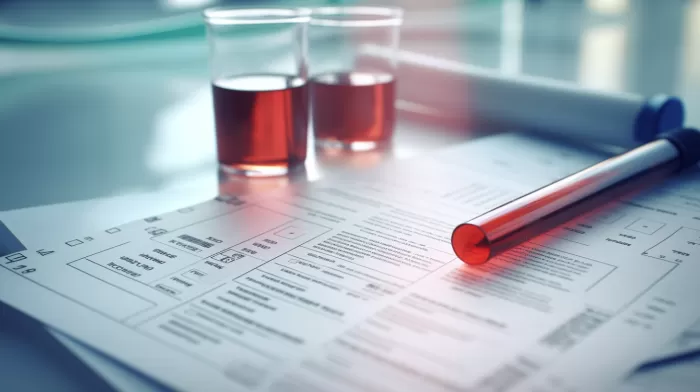Feeling chronically low on energy is a reality many face, with fatigue impacting the daily lives of millions. Between 1 million and 4 million Americans, or about 2.5% of the U.S population, suffer from chronic fatigue syndrome (CFS). In this article, we’ll discuss some of the diseases known to cause chronic low energy and the lab tests that can help identify these issues.
Diseases and Blood Tests
Heart, Lung, Liver, Kidney, Gastrointestinal, or Blood Diseases
To test for heart, liver, kidney, or blood illnesses before symptoms arise, consider asking your physician to run some routine screening tests:
- CMP (Comprehensive Metabolic Panel): This series of blood tests examine kidney function, liver function, electrolyte and fluid balance, and blood sugar levels.
- CBC (Complete Blood Count): This test checks for anemia or blood cancers.
- Lipids: For early detection of heart disease risk consider getting the newer lipid panel tests such as apoB, LDL and HDL particle concentrations (particle size and number), highly-sensitive C-reactive protein (hs-CRP), and Lipoprotein-Associated Phospholipase A2 (Lp-PLA2).
- Beta Natriuretic Peptide (BNP): High levels of BNP could be an indicator of heart weakness or injury, sleep apnea, pulmonary hypertension, kidney failure, or anemia.
Evaluating your lung health can be easily done by doing moderately intense exercise and noting any symptoms of abnormal shortness of breath.
Digestive illness can be more tricky to identify, as symptoms usually act as clues, but most people have some degree of dysbiosis (bacterial and yeast imbalance) or leaky gut syndrome. Two main ways to test for these conditions are checking for food allergies and gluten sensitivities. Ask your physician to test your blood for antiendomysial antibody (EMA) and anti-tissue transglutaminase (tTG) antibody.
Connective Tissue Diseases and Arthritis
To test for connective tissue diseases and arthritis, your physician can run tests such as erythrocyte sedimentation rate (ESR), C-reactive protein (CRP), anti-nuclear antibody (ANA), creatine kinase (CK), rheumatoid factor (RF), double-stranded DNA antibody, HLA-B27 antigens, and Lyme titers.
Hormone Disorders
Ask your doctor to check for thyroid hormone levels by examining thyroxine (T4), triiodothyronine (T#3), and thyroid-stimulating hormone (TSH). Also request testing of sex steroid hormones including DHEA-sulfate, testosterone, estradiol, progesterone, and cortisol. Additionally, a fasting insulin level test should be administered, as high levels of insulin (hyperinsulinemia) can signal insulin resistance – a quiet but deadly condition often preceding diabetes.
Adrenal Fatigue
The most common hormonal cause of chronic low energy is low cortisol levels from adrenal fatigue. Hormones can fall out of balance due to nutrient deficiencies, toxic metal excesses, toxic chemicals, radiation, and emotional imbalances.
Infections
Talk to your doctor about testing for infections such as Chlamydia pneumonia, Lyme disease, syphilis, and viruses like Hepatitis B or C, parvovirus, Epstein-Barr virus, Human herpes virus, coxsackie virus B, spuma virus, human immunodeficiency virus (HIV), and T-cell leukemia virus.
Micronutrient Deficiencies
Some basic vitamins that your physician can check for are iron studies, 25-hydroxy vitamin D, Vitamin B12, and folate. However, some specialized labs offer more in-depth analysis of micronutrients, vitamins, minerals, and antioxidants.
Toxic Metals
Toxic metals like mercury, lead, copper, aluminum, cadmium, and nickel can interfere with mitochondrial energy production and enzyme binding sites. One recommended way to detect them is using hair analysis, as the metals are deposited over time in hair, while blood levels would be undetectable.
Next Steps
After ruling out or effectively treating these illnesses, if you still suffer from chronic low energy, there’s more to know about and do. By staying informed and testing for the underlying causes of your symptoms, you’re taking the first steps towards a healthier and more energy-filled life.



